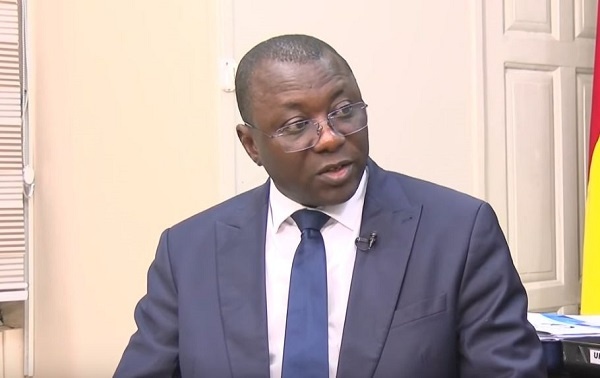By Joshua Worlasi AMLANU & Ebenezer Chike Adjei NJOKU
Government has set a new indicative target to limit total disbursements under pre-Cut-Off Date (CoD) facilities to US$250million annually over the period of 2024-2025.
This measure aims to keep disbursements within programme targets while addressing challenge posed by the significant volume of undisbursed funds from prior commitments.
The directive follows assessment from an International Monetary Fund (IMF) staff report, which emerged after the second review of Ghana’s 36-month Extended Credit Facility Arrangement.
The report highlighted that undisbursed amounts under external bilateral and commercial facilities, signed before the debt restructuring CoD, were substantially larger than initially anticipated. An estimated US$3.8billion in undisbursed funds from bilateral commitments alone has presented a considerable obstacle to achieving debt targets.
“The authorities will carefully monitor disbursements associated with bilateral and commercial projects signed before December 2022,” the IMF report stated. This vigilant oversight is crucial in ensuring that project disbursements align with programme parameters.
In response to these findings, Ghanaian authorities – along with the Official Creditors Committee (OCC) – have agreed that the pace of project disbursements will be calibrated according to programme parameters.
Government will evaluate the maturity and socio-economic value of each project, their expected pace of disbursement and the associated debt service profile. Based on this comprehensive assessment, a prioritisation strategy will be implemented, which may involve rescaling, rephasing or even cancelling some projects.
“We are committed to maintaining our debt sustainability and achieving our macroeconomic objectives,” stated Finance Minister Dr. Mohammed Amin Adam. “This new indicative target is a critical step in ensuring that our external project disbursements stay within the defined limits.”
To further support this initiative, a monthly intra-government monitoring mechanism will be established.
This system will ensure that disbursements remain aligned with the US$250million annual limit. Coordination with bilateral creditors will be a key aspect of this effort, as laid out in the Memorandum of Understanding (MoU) with the OCC.
Government also recognises the need to accommodate higher externally-funded spending due to a deteriorating maritime security situation.
This requires additional external borrowing, which has prompted a request for modification of the performance criterion to allow for US$172million in additional borrowing for security-related expenditures.
In light of these requirements, the authorities will prepare a comprehensive assessment of potential future disbursements from bilateral and commercial partners for projects signed before December 2022.
This assessment, due by the end of August 2024, will feed into the prioritisation plan aimed at ensuring future disbursements align with programme parameters and debt sustainability goals.
Following the announcement of a debt standstill on December 19, 2022 and a formal request for debt relief through the G20 Common Framework, Ghana reached an agreement with its official bilateral creditors on June 11, 2024.
This agreement is expected to resume stalled project disbursements within agreed fiscal limits and provide debt service relief of US$2.8billion between 2023 and 2026.
The restructuring process has also made headway with commercial creditors. After extensive negotiations, Ghana secured an agreement on the financial and non-financial terms of Eurobond treatment on June 19, 2024.
This included a 37 percent nominal principal haircut, equating to a 45 percent market value loss, with no contingent compensation mechanism. The debt cancellation involved US$4.7billion, with debt service savings amounting to US$4.4billion from 2023 to 2026.










